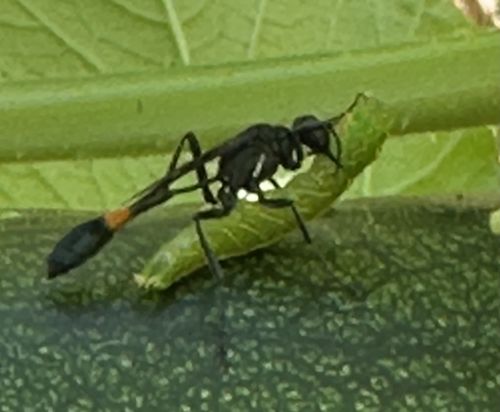Ensign Wasp
Scientific Name: Evania appendigaster
Order & Family: Order: Hymenoptera, Family: Evaniidae
Size: Typically 5-10 mm (0.2-0.4 inches) in length

Natural Habitat
Ensign wasps are commonly found in environments where cockroaches are prevalent, including homes, businesses, and other human dwellings, as well as natural outdoor environments like gardens and wooded areas. They prefer warm, humid conditions.
Diet & Feeding
Larval ensign wasps are parasitic and feed exclusively on the eggs within the oothecae of various cockroach species. Adult ensign wasps primarily feed on nectar and honeydew.
Behavior Patterns
Adult ensign wasps are often seen actively searching for cockroach oothecae (egg cases) in cracks and crevices, sometimes tapping their antennae to locate them. Once an ootheca is located, the female ensign wasp uses her ovipositor to lay an egg inside. The wasp larva then develops within and consumes the cockroach eggs, eventually emerging as an adult.
Risks & Benefits
Ensign wasps are beneficial insects as they are natural predators of cockroaches, helping to control cockroach populations without the need for chemical pesticides. They pose no direct risk to humans, do not sting, and are generally harmless.
Identified on: 8/11/2025